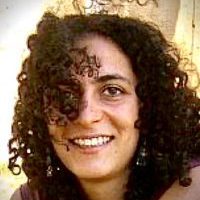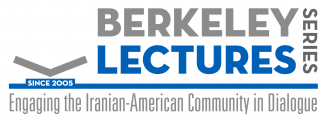Berkeley Lecture Series Presents:
A Lecture by
Dr. Chowra Makaremi
Topic:
An anthropological perspective on the question of violence in post-revolution Iran
Title in Farsi:
خشونت از دید مردم شناسی در ایران بعد از انقلاب
Date: Sunday, April 24, 2022
Time: 11:00 am (PST); Tehran: 10:30 pm; 8:00 pm (CET)
Place: BLS Virtual Conference Room
What do social science, and specifically anthropology, say about mass violence? And what tools, methods and theories does this offer to better understand the post-revolution era in Iran, especially in the 1980s? Many studies around the globe have tried to grasp the mechanisms and effects of collective violence, not only as a destructive experience, but as what produces and maintains power dynamics, institutions and social structures. They also look at how these phenomena are experienced everyday, the traces they leave on people and groups, and how these individual and collective levels relate to each other. How does the narration of violence, and lack thereof, reshape social and political identities: our understandings of citizenship, national belonging and public space? This anthropological knowledge, built in various geographical and historical situations, helps us better understand the history of violence in post-revolutionary Iran, and its actuality.
 Chowra Makaremi is a writer, director and anthropologist at the National Center for Scientific Research (CNRS) in Paris. She has conducted fieldwork and coordinated several research collectives on border control in Europe. She is working on post-revolution violence in Iran and leading the ERC research program “Off-Site” on this subject. She published Aziz’s Notebook at the Iranian revolution (Gallimard, 2011) and with Hannah Darabi Enghelab Street. A revolution through books 1979-83 (Le Bal/Spector, 2019). She directed the documentary movie Hitch. An Iranian Story (2019, Alter Ego, France, 78 min.).
Chowra Makaremi is a writer, director and anthropologist at the National Center for Scientific Research (CNRS) in Paris. She has conducted fieldwork and coordinated several research collectives on border control in Europe. She is working on post-revolution violence in Iran and leading the ERC research program “Off-Site” on this subject. She published Aziz’s Notebook at the Iranian revolution (Gallimard, 2011) and with Hannah Darabi Enghelab Street. A revolution through books 1979-83 (Le Bal/Spector, 2019). She directed the documentary movie Hitch. An Iranian Story (2019, Alter Ego, France, 78 min.).
Media: This event will be streamed live in Radio Pooya.
